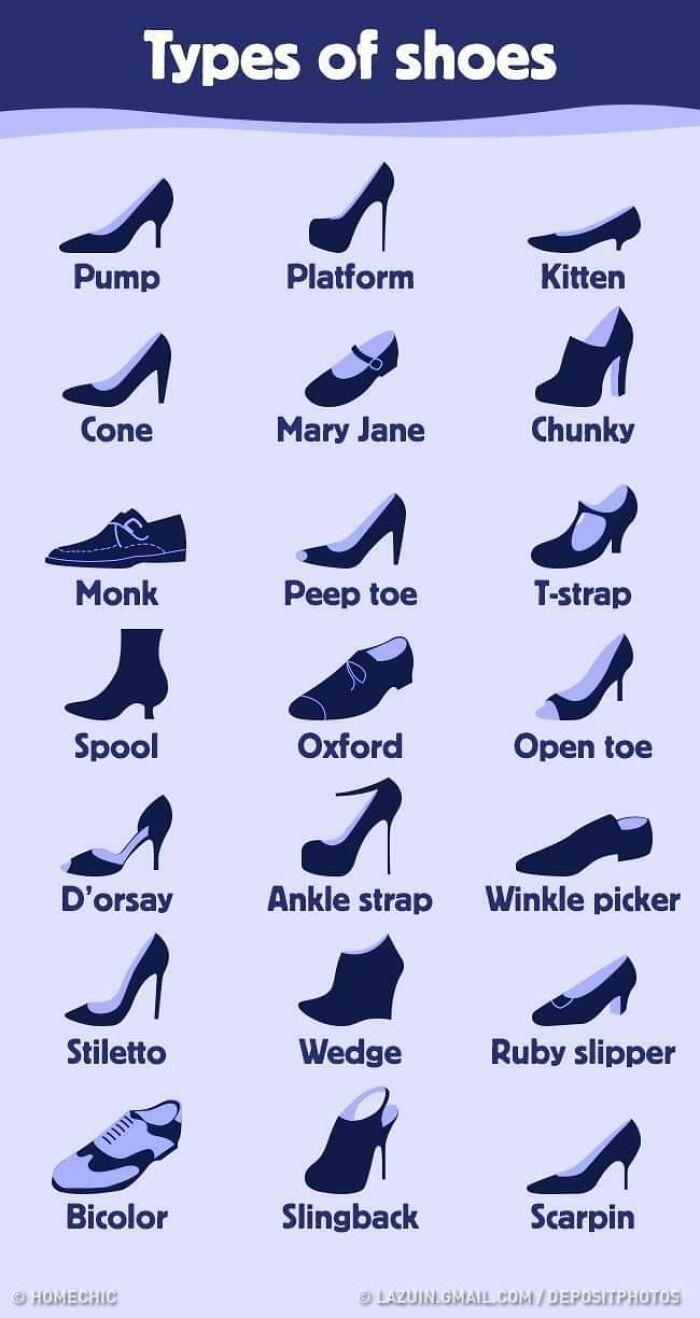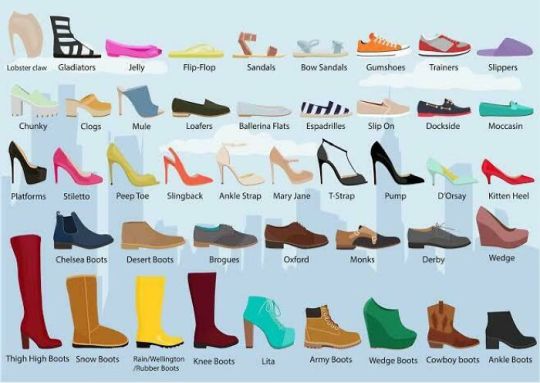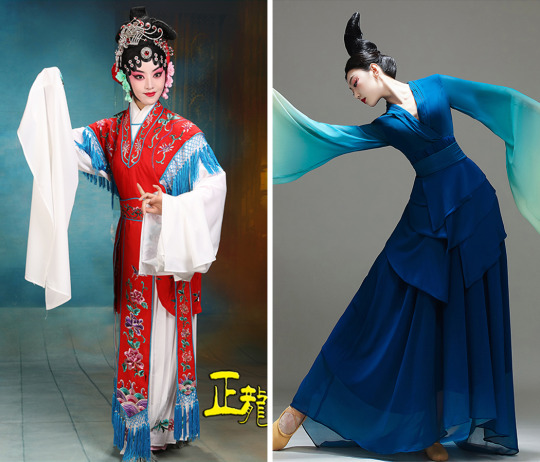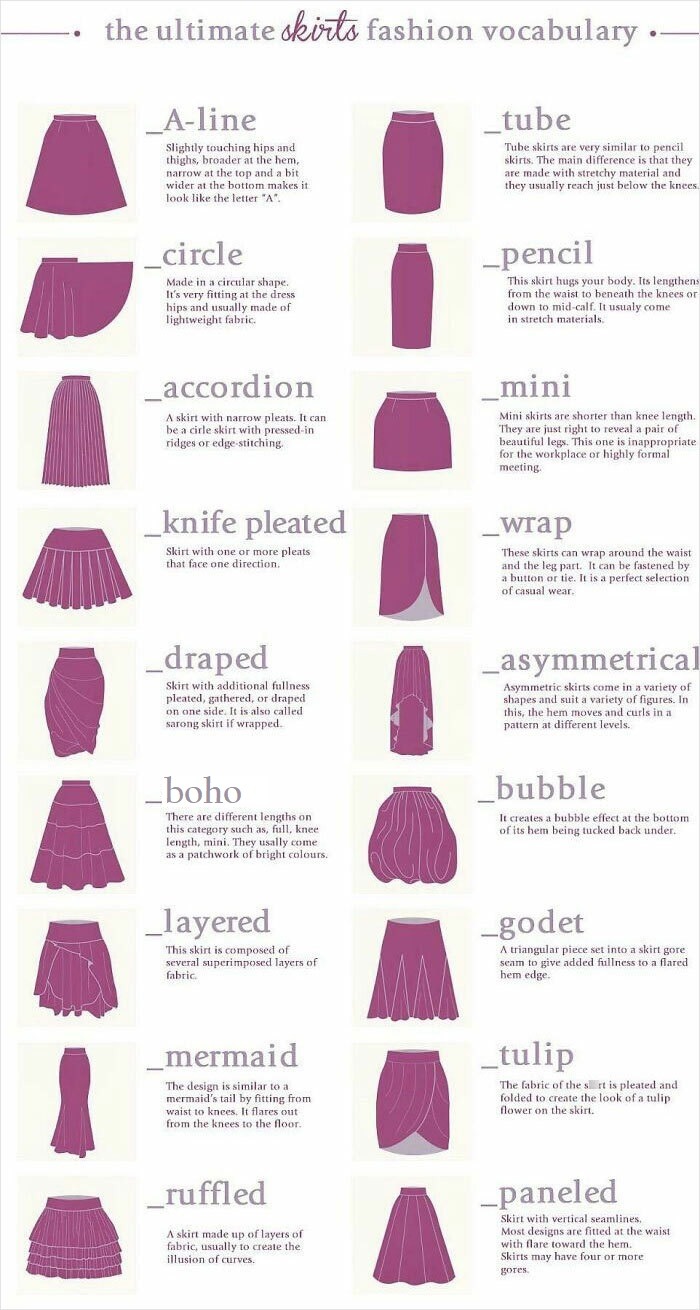#terminology
Note
I'm writing a story set in the 1800s that has an intellectually disabled character. how would you recommend I get across that they are intellectually disabled given that the respectful terms wouldn't really have existed then?
Hi!
I think that the best idea would be to just show the symptoms of their disability. Show them struggle with tasks (which ones would depend on the severity of their disability), if they are able to do so they could speak differently when compared to other characters - I often forget words when speaking, repeat myself because I didn't understand the answer to a question (or realized that it was the answer), or have to ask someone for a TLDR because I got lost in what they were saying (even if I'm actively paying attention). Sometimes I also have to circle multiple times to a single idea to "get it out" properly because it's hard to conceptualize it all at once. Your character could also get overwhelmed or stressed more easily.
Also, often ID comes with physical symptoms so they could have dyspraxia like me! In case their ID is caused by a syndrome, it could work to describe the facial features that come with it, e.g. I think most readers would be familiar with how a person with Down Syndrome looks like. But the most important part is to show the actual symptoms of the disability!
If you want to name the disability without using slurs, "delayed" or "mentally disabled" or "having a slower thought process" could also work. They wouldn't be my primary choices in most contexts, but for historical fiction it's a bit different. "Handicapped" also started being used in the late 19th century, it's not necessarily a slur but it's still offensive. You could go for something like "fallen behind their peers" if you want.
I think that it would be a good idea to mention in some kind of author's note that your work is a piece of historical fiction and that those terms aren't preferred now (and show those that are, i.e. intellectual disability in most places and general learning disability in the UK). A lot of people don't know this, so it could be genuinely educational!
Thanks for your ask, I hope this helps!
mod Sasza
30 notes
·
View notes
Text
"There was an exchange on Twitter a while back where someone said, ‘What is artificial intelligence?' And someone else said, 'A poor choice of words in 1954'," he says. "And, you know, they’re right. I think that if we had chosen a different phrase for it, back in the '50s, we might have avoided a lot of the confusion that we're having now."
So if he had to invent a term, what would it be? His answer is instant: applied statistics. "It's genuinely amazing that...these sorts of things can be extracted from a statistical analysis of a large body of text," he says. But, in his view, that doesn't make the tools intelligent. Applied statistics is a far more precise descriptor, "but no one wants to use that term, because it's not as sexy".
'The machines we have now are not conscious', Lunch with the FT, Ted Chiang, by Madhumita Murgia, 3 June/4 June 2023
#quote#Ted Chiang#AI#artificial intelligence#technology#ChatGPT#Madhumita Murgia#intelligence#consciousness#sentience#scifi#science fiction#Chiang#statistics#applied statistics#terminology#language#digital#computers
12K notes
·
View notes
Text
Fantasy worldbuilding tip #137: most of the time, the word you're looking for is "wild", not "feral". Though the term may be used in other ways when referring to individual animals, when referring to a whole species, "feral" specifically means a group of creatures which are born wild, but are descended from domesticated stock. Thus, if you call a fantasy species that you invented "feral", you're necessarily implying that there exists a domesticated version of whatever it is.
This may in fact be what you intend, but best be explicit if you do!
9K notes
·
View notes
Photo



5K notes
·
View notes
Text
We ask your questions so you don’t have to! Submit your questions to have them posted anonymously as polls.
#polls#incognito polls#anonymous#tumblr polls#tumblr users#questions#disability#disabilities#disabled community#language#terminology#polls about language
418 notes
·
View notes
Text
Recently, I attended a conference where people referred to it as the ‘triple planetary crisis’ (climate change, biodiversity loss and plastic/waste pollution) and honestly I think it’s a game changer, shorter to say that ‘climate and ecological crisis’, leaves out a lot of the words that switch people off (warming, extinction, etc) and yet conveys urgency and a sense of universal responsibility. What do you guys think?
#solarpunk#hopepunk#environmentalism#social justice#community#climate justice#bright future#terminology#triple planetary crisis
618 notes
·
View notes
Text
How to write: ethnicity & skin colour

requested by: anonymous
request: How exactly can I describe a characters ethnicity/skin color casually, without it sounding like a specific scene that just exists to describe the skin color? I hope this makes sense lmao… I just want to write a scene where I casually mention someone’s ethnicity or skin color
description of appearance: No matter if skin colour or hairstyle or clothes, a text is more dynamic if you don't dedicate an entire scene/paragraph to it but rather sprinkle the necessary information in here and there. However, there can be instances where it's conducive to the plot to put that entire paragraph (e.g. introducing a new important character with backstory). Otherwise, I'd say try to keep it short and put it where it serves the plot.
ways to incorporate...
... a description of appearance:
when a character makes their first entrance (describe everyone's colouring - POCs' and white characters')
the impression their complexion makes together with their clothes: "the bright yellow of their shirt complemented their dark skin"
the way their colouring interacts with lighting: "the grey weather took away the rosy hue of their fair skin"
when appearances create a contrast: "I immediately noticed them because they were the only other black person"
... ethnicity:
let the characters mention it where it makes sense
regarding the narrator you've chosen for your story, it can also be blended into an inner monologue
include parts of their culture: traditions, terms, family, etc. (this also allows to bring up their ethnicity repeatedly over the story and not only at the beginning)
show their struggles: are they affected by social struggles? then show it!
words to use to describe skin colour:
... basic colour descriptions:
brown
black
beige
white
pink
... more specific colours (try sticking to familiar/common words that can be easily visualised):
amber
bronze
copper
gold
ochre
terracotta
sepia
sienna
porcelain
tan
... prefixes or modifiers (can be easily combined with basic colours):
dark
rich
warm
deep
fair
faint
light
cool
pale
... undertones (pre-dominant colours underneath the skin - often warm or cool, sometimes also neutral and olive):
yellow
orange
coral
golden
silver
rose
pink
red
blue
... avoid food analogies as it's often received as offending, fetishising, and/or objectifying.
That's all I can provide as of now but I'm sure you guys have aspects to contribute. I'm very interested to hear your thoughts, so please feel free to add to this post whatever you like to/can share <3
And for more information, maybe also check out @writingwithcolor for more specialised posts on the topic <3
#ethnicity in writing#writing advice#writing skin color#terminology#writeblr#writers on tumblr#writing guide#creative writing#how to write#writing inspiration#writing ideas
3K notes
·
View notes
Note
Please can you explain the difference of meaning between hanfu and huafu ? Sorry if you already got the question
Hi, thanks for the question, and sorry for taking ages to reply! (hanfu photo via)

The term “hanfu” (traditional Chinese: 漢服, simplified Chinese: 汉服) literally means “Han clothing”, and refers to the traditional clothing of the Han Chinese people. “Han” (漢/汉) here refers to the Han Chinese ethnic group (not the Han dynasty), and “fu” (服) means “clothing”. As I explained in this post, the modern meaning of “hanfu” is defined by the hanfu revival movement and community. As such, there is a lot of gatekeeping by the community around what is or isn’t hanfu (based on historical circumstances, cultural influences, tailoring & construction, etc). This isn’t a bad thing - in fact, I think gatekeeping to a certain extent is helpful and necessary when it comes to reviving and defining historical/traditional clothing. However, this also led to the need for a similarly short, catchy term that would include all Chinese clothing that didn’t fit the modern definition of hanfu -- enter huafu.
The term “huafu” (traditional Chinese: 華服, simplified Chinese: 华服) as it is used today has a broader definition than hanfu. “Hua” (華/华) refers to the Chinese people (中华民族/zhonghua minzu), and again “fu” (服) means “clothing”. It is an umbrella term for all clothing that is related to Chinese history and/or culture. Thus all hanfu is huafu, but not all huafu is hanfu. Below are examples of Chinese clothing that are generally not considered hanfu by the hanfu community for various reasons, but are considered huafu:
1. Most fashions that originated during the Qing dynasty (1644–1911), especially late Qing, including the Qing aoqun & aoku for women, and the Qing changshan and magua for men. I wrote about whether Qing dynasty clothing can be considered hanfu here. Tangzhuang, which is an updated form of the Qing magua popularized in 2001, can also fit into this category. Below - garments in the style of Han women’s clothing during the Qing dynasty (清汉女装) from 秦綿衣莊 (1, 2).

2. Fashions that originated during the Republican era/minguo (1912-1949), including the minguo aoqun & aoku and qipao/cheongsam for women, and the minguo changshan for men (the male equivalent of the women’s qipao). I wrote about why qipao isn’t considered hanfu here. Below - minguo aoqun (left) & qipao (right) from 嬉姷.

Below - Xiangsheng (crosstalk) performers Zhang Yunlei (left) & Guo Qilin (right) in minguo-style men’s changshan (x). Changshan is also known as changpao and dagua.

3. Qungua/裙褂 and xiuhefu/秀禾服, two types of Chinese wedding garments for brides that are commonly worn today. Qungua originated in the 18th century during the Qing dynasty, and xiuhefu is a modern recreation of Qing wedding dress popularized in 2001 (x). Below - left: qungua (x), right: xiuhefu (x).

4. Modified hanfu (改良汉服/gailiang hanfu) and hanyuansu/汉元素 (hanfu-inspired fashion), which do not fit in the orthodox view of hanfu. Hanfu mixed with sartorial elements of other cultures also fit into this category (e.g. hanfu lolita). From the very start of the hanfu movement, there’s been debate between hanfu “traditionalists” and “reformists”, with most members being somewhere in the middle, and this discussion continues today. Below - hanyuansu outfits from 川黛 (left) and 远山乔 (right).

5. Performance costumes, such as Chinese opera costumes (戏服/xifu) and Chinese dance costumes. These costumes may or may not be considered hanfu depending on the specific style. Dance costumes, in particular, may have non-traditional alterations to make the garment easier to dance in. Dunhuang-style feitian (apsara) costumes, which I wrote about here, can also fit into this category. Below - left: Chinese opera costume (x), right: Chinese dance costume (x).

6. Period drama costumes and fantasy costumes in popular media (live-action & animation, games, etc.), commonly referred to as guzhuang/古装 (lit. “ancient costumes”). Chinese period drama costumes are of course based on hanfu, and may be considered hanfu if they are historically accurate enough. However, as I wrote about here, a lot of the time there are stylistic inaccuracies (some accidental, some intentional) that have become popularized and standardized over time (though this does seem to be improving in recent years). This is especially prevalent in the wuxia and xianxia genres. Similarly, animated shows & games often have characters dressed in “fantasy hanfu” that are essentially hanfu with stylistic modifications. Below - left: Princess Taiping in historical cdrama 大明宫词/Palace of Desire (x), right: Wei Wuxian and Lan Wangji in wuxia/xianxia cdrama 陈情令/The Untamed (x).

7. Any clothing in general that purposefully utilizes Chinese style elements (embroidery, fabrics, patterns, motifs, etc). Chinese fashion brand Heaven Gaia is a well-known example of this. Below - Chinese-inspired designs by Heaven Gaia (x).

8. Technically, the clothing of China’s ethnic minorities also fit under the broad definition of huafu, but it’s rarely ever used in this way.
From personal observation, the term “huafu” is mainly used in the following situations:
1. Some large-scale events to promote Chinese clothing, such as the annual “华服日/Huafu Day”, will use “huafu” in their name for inclusivity.
2. For the same reason as above, Chinese clothing including hanfu will often be referred to as “huafu” on network television programs (ex: variety shows).
3. A few Chinese clothing shops on Taobao use “huafu” in their shop name. Two examples:
明镜华服/Mingjing Huafu - sells hanfu & hanyuansu.
花神妙华服/Huashenmiao Huafu - sells Qing dynasty-style clothing.
With the exception of the above, “huafu” is still very rarely used, especially compared to “hanfu”. It has such a broad definition that it’s just not needed in situations for which a more precise term already exists. However, I do think it’s useful as a short catch-all term for Chinese clothing that isn’t limited to the currently accepted definition of hanfu.
If anyone wants to add on or correct something, please feel free to do so! ^^
Hope this helps!
#happy 2023!#hanfu#huafu#terminology#language#hanfu movement#history#reference#ask#reply#>1000#chinese fashion#chinese culture#china
2K notes
·
View notes
Text
The beginner autistic guide to common terms in our community (with extra context!).
*Disclaimer, I’m not a professional. This is just knowledge from my experience as an autistic person. Please feel free to correct anything :)
These definitions will include some of my own opinions and thoughts, especially on the more controversial terms. This is simply to help better prepare new autistic community members for conversations they become engaged in. Having all the perspective and context you can have can be very helpful when moving into new social spaces.
Autism (Or Autistic Spectrum Disorder, ASD): A neurodevelopmental disorder that is present from very early childhood. It’s mostly recognised through difficulties with social interaction and restricted and/or repetitive behaviours. The way it is referred to as “Autism Spectrum Disorder” is specifically referring to the fact that autism presents in countless ways. There are common traits and patterns, but the severity and complexity of those traits and symptoms is infinite.
NOTE: This does not mean that ‘everyone is a little bit autistic’. You are either autistic or you are not. It just means that if you have autism, it may present very differently to other autistic people you know.
Asperger’s Syndrome: Asperger’s syndrome is usually considered an older term for a ‘subtype’ of autism. The term is considered outdated by the DSM-5 and no longer used in that document. However it is still used in a lot of other countries. Now it is becoming more socially known that ‘Asperger’s syndrome’ is just a specific presentation of autism. Many autistics don’t like the use of the word ‘Asperger’s’ because of a couple reasons:
The term has a long history with NAZI’s and eugenics.
The term seems to basically mean ‘high functioning’ autistic, which simplifies the condition.
Asperger’s Syndrome is defined in a very similar way to autism, however people with “Asperger’s’ may be described as ‘gifted’ or ‘intellectual’.
It’s important to note that many people still identify themselves with the term ‘Asperger’s’. While it is good to be educated and up to date with terminology, some people have identified with this term their whole life and it’s not wrong to use the term for one-self. But either way, I do encourage you to do more research if you are comfortable.
Neurotype: Can be basically defined as the type of brain function one has. Some people consider autism a neurotype, and then neurotypical as another neurotype. However, many people claim that autism is ‘just another neurotype’. This is a harmful way of thinking about autism because autism is a disability. Labelling it as a ‘neurotype’ belittles all the struggles autistic people have that make them disabled. Autism is a spectrum and so some autistic people may not really consider themselves disabled, but many do.
Neurotypical (NT): A non-autistic person with no other mental conditions.
Allistic: A non-autistic person who can still have other mental conditions, such as depression or ADHD.
Neurodivergent (ND): Traditionally ‘Neurodivergent’ has been used to mean either autistic or ADHD. However in some contexts it is used to mean someone with any mental condition, including personality disorders or mental illnesses such as depression and anxiety.
Neurodiversity: a term used to describe the fact that there are many neurotypes in the world. It is used to imply that differences in brain development and function should be accepted as relatively normal. I think this is a good sentiment, but that some neurotypes should still be considered disabilities as well as a neurotype, so as not to diminish the struggles specific neurotypes go through.
High functioning/Low functioning: The labels of functioning are terms used to describe how independent an autistic (or other kind of disabled) person is able to be. Many autistics do NOT like the use of these terms for a couple reasons:
It tends to focus on the way an autistics disability affects the allistic people around them.
It simplifies the experience of the individual with autism to how independent they are, and is also not very descriptive for anyone trying to help the said autistic person.
High needs/Low needs: These are labels used to describe how much assistance an autistic (or other kind of disabled) person may need. It is slightly preferred by autistic people as the language is more centred to what the autistic person needs, rather than how independent they can be.
NOTE, many autistic people would argue that these terms are basically the same as high functioning and low functioning. I personally consider it to be best to just state someones highest needs or difficulties. For example “Olivia is nonverbal and highly sensitive to light and noise.”.
Masking: Masking is the act of hiding ones autistic traits to appear to be neurotypical. Masking is often a survival strategy developed by autistics to evade bullying or isolation. Masking can include suppressing the urge to stim, forcing oneself to make eye contact, learning how to ‘properly’ execute facial expressions, studying body language, etc. Masking can be an extremely vital skill for autistic people, but when an autistic person has to mask for long periods of time it can lead to negative consequences such as burn out or meltdowns. Masking can also be used in the context of other disabilities, such as ADHD.
Scripting: Scripting is a form of masking, when an autistic person pre-plans or practices responses or entire conversations. You may have a script you unconsciously follow for questions like “how are you?” Or “how is work?”, etc. It may be inspired from TV shows, movies or observing other people interact.
Burn out: Burn out is when an autistic person reaches their limit and has decreased energy for an extended period of time. Burn out may last anywhere between a couple days or a few years. Burn out is often caused by excessive masking, but can also be caused by repeated rejection, bullying or other mental conditions. Burn out is not the same as depression, but it can co-exist with depression.
Meltdown: A meltdown is when an autistic person experiences what might look like a ‘tantrum’. The person may be very angry, yelling, punching or hitting things (or themselves). They may be aggressively stimming or humming to themselves. A meltdown, internally, feels as if you are completely filled with negative energy, as if you might burst. It can feel like extreme irritation, or anger, or shame. Meltdowns can be caused by any number of stressful situations. For an autistic person this can be having a lot of social events, their routine being disrupted, having to eat foods they don’t like, being overstimulated, or even just negative social interactions.
Shutdown: A shutdown is very similar to a meltdown, in how it can be caused. For me personally, I tend to have a shutdown if I am not in a safe place to have a meltdown. From the outside it looks very similar to dissociation, and it can co-exist with dissociation. It typically feels like you are shutting down, turning off. You emotions were about to burst and then you just went numb. You may be unable to move, or go non-verbal. You may be crying quietly or you may simply just very suddenly feel the need to go home.
NOTE: Meltdowns and shutdowns can appear to feel like a panic attack, but they are different. Panic attacks come from intense feelings of dread or doom. Meltdowns and shutdowns come from repeated, or intense, stressful situations for an autistic.
Hypersensitive: Hypersensitivity is when the brain processes sensory input (such as touch, taste and smell) as much more intense than a neurotypical person would. This can mean that a slight cold breeze may feel painfully cold. Or looking outside a window can hurt ones eyes because it feels too bright. Or having to wear specific textures to stay calm.
Hyposensitive: Hyposensitivity is the opposite of hypersensitivity. It is when your brain inteprets sensory input as much less intense than a neurotypical would. Ways this can present in an autistic person include not realising when they hurt themselves, having a high pain tolerance, being unaware of temperature changes, etc. You may also not recognise your bodies hunger cues, dehydration or need for sleep.
NOTE: An autistic person can experience both hypersensitivity and hyposensitivity. It can also fluctuate day-to-day.
Sensory Processing Disorder (SPD): SPD is basically the term for experiencing lots of variation in your sensory input. It is similar to Auditory processing disorder. Which is where your hearing is technically fine (you aren’t any form of deaf), but you have trouble distinguishing what specific sounds are, or listening to one, important sound, in an area with lots of different noises (for example, being unable to understand what someone is saying next to you, because the TV is on.)
Overstimulation: This is when an autistic person has been experiencing too many different sensations at once, or for an extended period of time. This may be caused by too many noises happening at once. Or even just one annoying sound repeating for a long time. It can also be triggered by touch, taste, sight and smell.
Executive function/dysfunction: Executive function is the term used to describe how the brain initiates tasks. For neurodivergent folk, our executive function is often dysfunctional. This means we can often find it difficult to start new tasks. A way you may experience it is when you are sitting down, you may be screaming internally that you need to go and get some food, but your body seems unwilling to co-operate. Having executive dysfunction does not mean you are lazy, or do not want to do the task, it means you may be unable to do the task.
Autistic intertia: Autistic inertia is related to executive dysfunction, because it is a term that helps describe how autistic people struggle to switch or initiate tasks. “ An autistic at rest remains at rest, and an autistic in motion remains in motion”.
Special interest/Hyperfixation: A special interest is a extremely long term interest/obsession with a particular topic. An example might be being really into pokemon. Learning all the different types of pokemon, playing all the games and collecting heaps of merch. A hyperfixation is a more short-lived interest that can be destructive in it’s severity (for example, it might get so extreme that it’s the only thing you can think about, to the point where you neglect your needs). Special interests are less likely to be destructive. But hyperfixations can be healthy and normal too.
Stimming: Stimming or self stimulation is the act of doing repetitive movements to help self regulate. Stimming can look like spinning, chewing, flapping hands, dancing, foot tapping, pen clicking, touch soft fabrics, using weighted blankets, lighting candles, eating crunchy snacks, etc. All of these forms of movement or repetitive sensory input can help us regulate our emotions better, prevent a meltdown or shutdown, or focus on a task easier.
NOTE: Echolalia is another term you may hear. It is a form of stimming in which an autistic person repeats sounds/phrases over and over.
ADHD: Attention-deficit/hyperactivity disorder is a neurodevelopmental disorder like autism, but it affects the brain in different ways. It often presents as having difficulties with paying attention, regulating emotions and hyperactivity (or, alternatively, it can present as being inattentive).
Savant or Savant syndrome: A condition when someone with some type of significant mental disability is an expert/’savant’ in a particular field, to the point of surpassing neurotypical experts. An example might be having photographic memory, or being able to learn languages extremely easily, or being an extraordinary mathematician. Autistic people often don’t like to hear the term ‘savant’ as we are often only valued by ‘society’ if we are savants. And if we are not, then we are often treated as lesser. This is kind of a form of eugenics.
Eugenics: Eugenics is a philosophy or belief that we can selectively breed humans to ‘improve’ humanity. Or create the ‘perfect race’. This was an idealogy practiced by Adolf Hitler during WWII, which lead to the holocaust. Eugenics is often a subtly underlying philosophy behind many statements that, on face value, seem relatively harmless. For example - “autism is the next step in evolution” is currently a popular statement. However, this implies that every other neurotype is not an improvement, which therefore implies that being autistic is superior. This would be considered a form of eugenics. Eugenics is considered a horrible philosophy because it encourages people to look down on others and dehumanise anyone not like themselves.
Co-morbidity: A co-morbidity is the term used for a condition that is regularly seen in conjunction with another condition. For example, autism and ADHD are often seen together. However, it can also be used to simply describe someone who has more than one condition (physical or mental).
AuDHDer: Someone with autism and ADHD. Just a shortened way to refer to people with both disabilities.
Selective mutism/Situational mutism: When an autistic person (or other neurotype) experiences periods of being unable to speak or communicate. This can often occur in stressful situations, like before tests or during doctors appointments. It is officially referred to as ‘selective mutism’ but many are trying to change it to ‘situational mutism’ as the individual does not willingly choose when they go non-verbal.
Alexithymia: Alexithymia is typically described as the inability to define and/or describe ones emotions. So you may often feel a type of discomfort, but not be able to label what it is. Not being able to distinguish between anger and irritability. Or not knowing if you feel sad or confused. It can make seeking professional help for many conditions really difficult, as you are unable to put your experience into words. It can also be similar to hyposensitivity in the way that it makes it difficult to understand what you body is feeling.
Dyspraxia: Dyspraxia is a disorder that affects co-ordination, movement and balance. It can make things such as sports, driving, cooking and writing difficult. It is fairly common in autistic people.
Prosopagnosia: The inability to recognise/remember faces. It is more common in autistic people.
Synesthesia: Synesthesia is when one form of sensory input is sometimes also experienced as another. For example, someone with this condition may see colours when they hear someones name. They may hear a song and get a taste in their mouth. This is also more common in autistic people.
FINAL NOTE: Autism is a spectrum and you may not experience all of these different terms, or you may not experience them in the way I described them. That does not mean you aren’t autistic. This is not a diagnostic tool. This is simply a guide to learning the terms you may often hear when discussing autism.
#autism guide#autism#ASD#autism spectrum disorder#terminology#autistic terms#definition#neurodivergent#neurodiversity#allistic#aspergers#alexithymia#prosopagnosia#dyspraxia#actually autistic#synesthesia#auDHD#ADHD#autistic inertia#situational mutism#selective mutism
1K notes
·
View notes
Text
Writing Intellectually Disabled Characters
[large text: writing intellectually disabled characters]
Something that very rarely comes up in disability media representation are intellectually disabled characters. There is very little positive representation in media in general (and basically none in media meant specifically for adults or in YA). I hope this post can maybe help someone interested in writing disabled characters understand the topic better and create something nice. This is just a collection of thoughts of only one person with mild ID (me) and I don't claim to speak for the whole community as its just my view. This post is meant to explain how some parts of ID work and make people aware of what ID is.
This post is absolutely not meant for self diagnosis (I promise you would realize before seeing a Tumblr post about it. it's a major disorder that gets most people thrown into special education).
Before: What is (and isn't) intellectual disability?
ID is a single, life-long neurodevelopment condition that affects IQ and causes problems with reasoning, problem‑solving, remembering and planning things, abstract thinking and learning. There is often delay or absence of development milestones like walking (and other kinds of movement), language and self care skills (eating, going to the bathroom, washing, getting dressed etc). Different people will struggle with different things to different degrees. I am, for example, still fully unable to do certain movements and had a lot of delay in self-care, but I had significantly less language-related delay than most of people with ID I know. Usually the more severe a person's ID is the more delay they will have.
Intellectual disability is one single condition and it doesn't make sense to call it "intellectual disabilities" (plural) or "an intellectual disability". It would be like saying "they have a Down Syndrome" or "he has autisms". The correct way would be "she has intellectual disability" or "ze is intellectually disabled".
Around 1-3% of people in the world have intellectual disability and most have mild ID (as opposed to moderate, severe, or profound). It can exist on its own without any identifiable condition or it can be a part of syndrome.
There is over a thousand (ranging from very common to extremely rare) conditions that can cause ID but some of the most common are;
Down Syndrome,
Fragile X Syndrome,
Fetal Alcohol Syndrome,
Autism,
Edwards Syndrome,
DiGeorge Syndrome,
Microcephaly.
Not every condition always causes ID and you can have one of the above conditions without having ID as long as it's not necessary diagnostic criteria to be met. For example around 30% of autistic people have ID, meaning that the rest 70% doesn't. It just means that it's comorbid often enough to be counted as a major cause but still, autistic ≠ intellectually disabled most of the time.
A lot of things that cause intellectual disability also come with facial differences, epilepsy, mobility-related disabilities, sensory disabilities, and limb differences. A lot, but not all, intellectually disabled people go to special education schools.
Intellectual disability isn't the same as brain damage. Brain damage can occur at any point of a person's life while ID always starts in or before childhood.
"Can My Character Be [Blank]?"
[large text: "Can my character be [blank]?"]
The difficulty with writing characters with intellectual disability is that unlike some other things you can give your character, ID will very directly impacts how your character thinks and behaves - you can't make the whole character and then just slap the ID label on them.
Intellectually disabled people are extremely diverse in terms of personality, ability, verbality, mobility... And you need to consider those things early because deciding that your character is nonverbal and unable to use AAC might be an issue if you're already in the middle of writing a dialogue scene.
For broader context, a person with ID might be fully verbal - though they would still probably struggle with grammar, what some words mean, or with general understanding of spoken/written language to some degree. Or they could also be non-verbal. While some non-verbal ID people use AAC, it's not something that works for everyone and some people rely on completely language-less communication only. There is also the middle ground of people who are able to speak, but only in short sentences, or in a way that's not fully understandable to people who don't know them. Some might speak in second or third person.
Depending on the severity of your character's disability they will need help with different tasks. For example, I'm mildly affected and only need help with "complex" tasks like shopping or taxes or appointments, but someone who is profoundly affected will probably need 24/7 care. It's not infantilization to have your character receive the help that they need. Disabled people who get help with bathing or eating aren't "being treated like children", they just have higher support needs than me or you. In the same vein, your character isn't "mentally two years old" or "essentially a toddler", they are a twenty-, or sixteen-, or fourty five-year old who has intellectual disability. Mental age isn't real. Intellectually disabled people can drink, have sex, smoke, swear, and a bunch of other things. A thirty year old disabled person is an adult, not a child!
An important thing is that a person with ID has generally bad understanding of cause-and-effect and might not make connections between things that people without ID just instinctively understand. For example, someone could see that their coat is in a different place than they left it, but wouldn't be able to deduce that then it means that someone else moved it or it wouldn’t even occur to them as a thing that was caused by something. I think every (or at least most) ID person struggles with this to some extent. The more severe someone's disability is the less they will be able to connect usually (for example someone with profound ID might not be able to understand the connection between the light switch and the light turning off and on).
People with mild intellectual disability have the least severe problems in functioning and some are able to live independently, have a job, have kids, stuff like that.
What Tropes Should You Avoid?
[large text: what tropes should you avoid?]
The comic relief/punching bag;
The predator/stalker;
The "you could change this character into a sick dog and there wouldn't be much difference";
...and a lot more but these are the most prevalent in my experience.
Most ID characters are either grossly villainized (more often if they have also physical disabilities or facial differences) or extremely dehumanized or ridiculed, or all of the above. It's rarely actually *mentioned* for a character to be intellectually disabled, but negative "representation" usually is very clear that this who they're attempting to portray. The portrayal of a whole group of people as primarily either violent predators, pitiful tragedies or nothing more than a joke is damaging and you probably shouldn't do that. It's been done too many times already.
When those tropes aren't used the ID character is still usually at the very most a side character to the main (usually abled) character. They don't have hobbies, favorite foods, movies or music they like, love interests, friends or pets of their own and are very lucky if the author bothered to give them a last name. Of course it's not a requirement to have all of these but when there is *no* characterization in majority of disabled characters, it shows. They also usually die in some tragic way, often sacrificing themselves for the main character or just disappear in some off-the-screen circumstances. Either way, they aren't really characters, they're more like cardboard cutouts of what a character should be - the audience has no way to care for them because the author has put no care into making the character interesting or likable at all. Usually their whole and only personality and character trait is that they have intellectual disability and it's often based on what the author thinks ID is without actually doing any research.
What Terms to Use and Not Use
[large text: What Terms to Use and Not Use]
Words like: "intellectually disabled" or "with/have intellectual disability" are terms used by people with ID and generally OK to use from how much I know. I believe more people use the latter (person first language) for themselves but i know people who use both. I use the first more often but I don't mind the second. Some people have strong preference with one over the other and that needs to be respected.
Terms like:
"cursed with intellectual disability"
"mentally [R-slur]"
"moron"
"idiot"
"feeble-minded"
"imbecile"
is considered at least derogatory by most people and I don't recommend using it in your writing. The last 5 terms directly come from outdated medical terminology specifically regarding ID and aren't just "rude", they're ableist and historically connected to eugenics in the most direct way they could be. To me personally they're highly offensive and I wouldn't want to read something that referred to its character with ID with those terms.
(Note: there are, in real life, people with ID that refer to themselves with the above... but this is still just a writing guide. Unless you belong to the group i just mentioned I would advise against writing that, especially if this post is your entire research so far.)
Things I Want to See More of in Characters with Intellectual Disability
[large text: Things I Want to See More of in Characters with Intellectual Disability]
[format borrowed from WWC]
I want to see more characters with intellectual disability that...
aren’t only white boys.
are LGBT+.
are adults.
are allowed to be angry without being demonized, and sad without being infantilized.
are not described as "mentally X years old".
are respected by others.
aren't "secretly smart" or “emotionally smart”.
are able to live independently with some help.
aren't able to live independently at all and aren't mocked for that.
are in romantic relationships or have crushes (interabled... or not!).
are non-verbal or semi-verbal.
use mobility aids and/or AAC.
have hobbies they enjoy.
have caregivers.
have disabilities related to their ID.
have disabilities completely unrelated to their ID.
have friends and family who like and support them.
go on cool adventures.
are in different genres: fantasy, romComs, action, slice of life... all of them.
have their own storylines.
aren't treated as disposable.
don't die or disappear at the first possible opportunity.
...and I want to see stories that have multiple intellectually disabled characters.
I hope that this list will give someone inspiration to go and make their first OC with intellectual disability ! This is just a basic overview to motivate writers to do their own research rather than a “all-knowing post explaining everything regarding ID”. I definitely don't know everything especially about the parts of ID that I just don't experience (or not as much as others). This is only meant to be an introduction for people who don't really know what ID is or where to even start.
Talk to people with intellectual disability (you can send ask here but there are also a lot of other people on Tumblr who have ID and I know at least some have previously answered asks as well if you want someone else's opinion!), watch/read interviews with people who have ID (to start - link1, link2, both have captions) and try to rethink what you think about intellectual disability. Because it's really not that rare like a lot of people seem to think. Please listen to us when we speak.
Good luck writing and thank you for reading :-) (smile emoji)
mod Sasza
#mod sasza#writing intellectually disabled characters#neurodivergency#terminology#long post#writing advice#writing disabled characters#writeblr#writing reference#writing disability#writing tips#writing resources#writing help#intellectual disability representation
2K notes
·
View notes
Text

[Text: This user does not feel comfortable being referred to as plural.]
Like/Reblog if you save or use!
#userbox#did#system#did system#osdd1#osdd1 system#anti endo#endos dni#boundaries#boundary#preferred terminology#terminology#terms#mod morpho 🦋
159 notes
·
View notes
Text
Yes I do consider it a MASSIVE red flag when someone only ever refers to women as “females”!
That’s nasty, creepy shit!
Incel behaviour!
I can look past it when the Ferengi do it.
But not in real life!
Side Note: TERFs please stay far away from this post. Your bigotry and neurotypical ableism are not wanted here.
Keep that shit in the Tory Party.
Anyways
#dougie rambles#personal stuff#incels#fuck incels#restraining order#words#semantics#ferengi#reblog this#reblog the shit out of this#feel free to reblog#fuck TERFs#fuck tories#fuck brexit#tangentially#gender#biology#terminology#science#and the like
89 notes
·
View notes
Photo

#fashion#vocabulary#terminology#resources#writing resources#vocabulary problem fixed#thanks to people who alerted me!
2K notes
·
View notes
Text
I've been thinking about how it might be useful, if not necessarily entirely fulfilling for whatever it is that I need out of them, to ask politicians how they would define a healthy economy, as opposed to just asking them how they would try to ensure a healthy economy.
President Joe Biden took to the White House lectern Friday to tout the healthy economy – strong job creation, lowering inflation and increased workforce participation and job satisfaction. - US News, Sep. 1, 2023
And
"I think we will see a big pickup in growth. We may not see it in the winter quarter...but I’m hopeful that we’ll see it in the spring,” Larry Kudlow, head of the National Economic Council, said on Fox Business. “It’s a fundamentally healthy economy,” he said, touting the 3.5 percent unemployment rate and “tremendous wage gains.” - The Washington Post, Jan. 30, 2020
In both cases they are offering a few signs of a healthy economy, the things that are quantified and measured as indicators, like unemployment, inflation, and wages.
But... wouldn't 'the ability to buy or rent a living space, and food security, for as many people as possible' make more sense?
Yeah, low inflation is the sign of a good economy, but what is the healthy economy actually doing? The jobs being created, are they actually full time and paying a living wage?
Fuck knows how many times a person at the podium has referenced the stock market as a signifier of the economy's health, and we all know that's barely relevant to the lives of us normal people.
I guess the question I'd want to ask politicians is "if the economy's health were measured in percentage of people who are able to afford housing, food, and other essentials on a full-time job with no government assistance, is the economy actually healthy?"
Low inflation means jackshit if the minimum wage is still no inflation. Job creation means something, but not if it's so far from your home that you spend most of your paycheck commuting. 'Tremendous wage gains' don't mean much if you're looking at an average that includes the CEOs and allows their paychecks to skew the data upwards.
How many of your citizens can afford housing, groceries, and medical care on a full-time wage, without government assistance?
#phoenix talks#economics#phoenix politics#healthy economy#terminology#this is more of a#vent post#than anything else honestly
72 notes
·
View notes
Text
List of Terms: Chiss Ascendency Edition
(If I missed anything, please add in reblogs; I feel like I've forgotten stuff. Some of these are just assumptions based on the context around them.)
For all your Chiss Ascendency writing/roleplaying needs:
General Terms
Cheunh - Chiss Language
Minnisiat - Trade Language
Tybroic - Ancient language of the Stybla
Chaos - Name for the Unknown Regions by a native
Lesser Space - Main part of the Star Wars Galaxy
Syndicure - main governing body
Nine Ruling Families - head ruling body
Comm - Phone
Questis - Tablet
Data Cylinder - Storage Device
Univers - Universal Currency in the Chaos
Credit Chit - Money
Tube Car - Type of rail transport
Tube Car station - Rail Station
Skycar - Car
Skytruck - Truck
Dayroom - Sitting Room
Yapel - Waffles
Striped Fruit Squares - Poptarts
Nutpaste - a Nut Butter or Spread
Caccoleaf - coffee
Galara tealeaf - tea
Grillig-Juice packet - Capri Sun
Cooker - Oven/Stove
Nyix - Thicker metal used mainly in war ship building
Star Day - Birthday
Lurestick - electronic catch pole
Communication Triad - Three Poled device used to transmit communications across the Chaos. The bigger the Triad, the longer range the communication.
Animals
Yubals - Cows
Packbulls - a different breed of Cow? Donkey? Horse?
Whisperbird - hummingbird
Stingfly - Bee?
Whiskercub - Domesticated Cat
Groundlion - Big Cat
Growzer - Domesticated Dog
Firewolf - Type of Wild Dog
Blinkbirds - Hawk or Predator Bird
Nighthunter - Large constrictor serpent-like creature
Military Terms
Breacher - Missile with acid inside of it
Plasma Sphere - glop of fluid used to disable ships
Spectrum Lasers - Turbolasers tuned to a ship's electrostatic barrier frequency
Crippler Nets - electronic nets used to cripple ships electronics systems
Electrostatic Barrier - Type of ship shield
Gunboat - Starfighter
Missile boat - Starfighter
Heavy Cruiser - Destroyer type warship
Light Cruiser - Smaller warship
Patrol Cruiser - Smaller warship
Nightdragon Man of War - Largest Ship in the Fleet
Defense Fleet - Stays inside the Ascendency Border
Expansionary Defense Fleet - Protects the Ascendency from outside the limits of the Ascendency
Family Fleet - Fleets supplied by one of the Nine Ruling families
Military Ranks
Enlisted Ranks
Cadet
Senior Cadet
Junior Warrior
Mid-Warrior
Senior Warrior
Lieutenant
Lieutenant-Commander
Junior Commander
Mid-Commander
Senior Commander
Junior Captain
Mid-Captain
Senior Captain
Flag Ranks
Commodore
Mid-General
Mid-Admiral
General
Admiral
Senior General
Fleet Admiral
Supreme General
Supreme Admiral
Political Ranks
Patriarch - head of family
Speaker - head of family in the Syndicure
Syndic Prime - head syndic
Syndic - member of the Syndicure
Patriel - handles family business on the planetary scale
Councilor - handles family business on the local level
Aristocra - mid-level member of the Nine Ruling families
Family Ranks
Merit Adoptive
Trial-Born
Ranking Distant
Cousin
Blood
Ruling Families
Ufsa
Irizi
Dasklo
Clarr
Chaf
Plikh
Boadil
Mitth
Obbic
Forty Great Families
Xodlak
Kiwu
Pommrio
Erighal
Stybla
Sayings
"Son of a growzer," - Son of a bitch
60 notes
·
View notes
Text
Scrolling along like that's not what psychotic means that's not what empathy means that's not what gaslighting means
69 notes
·
View notes